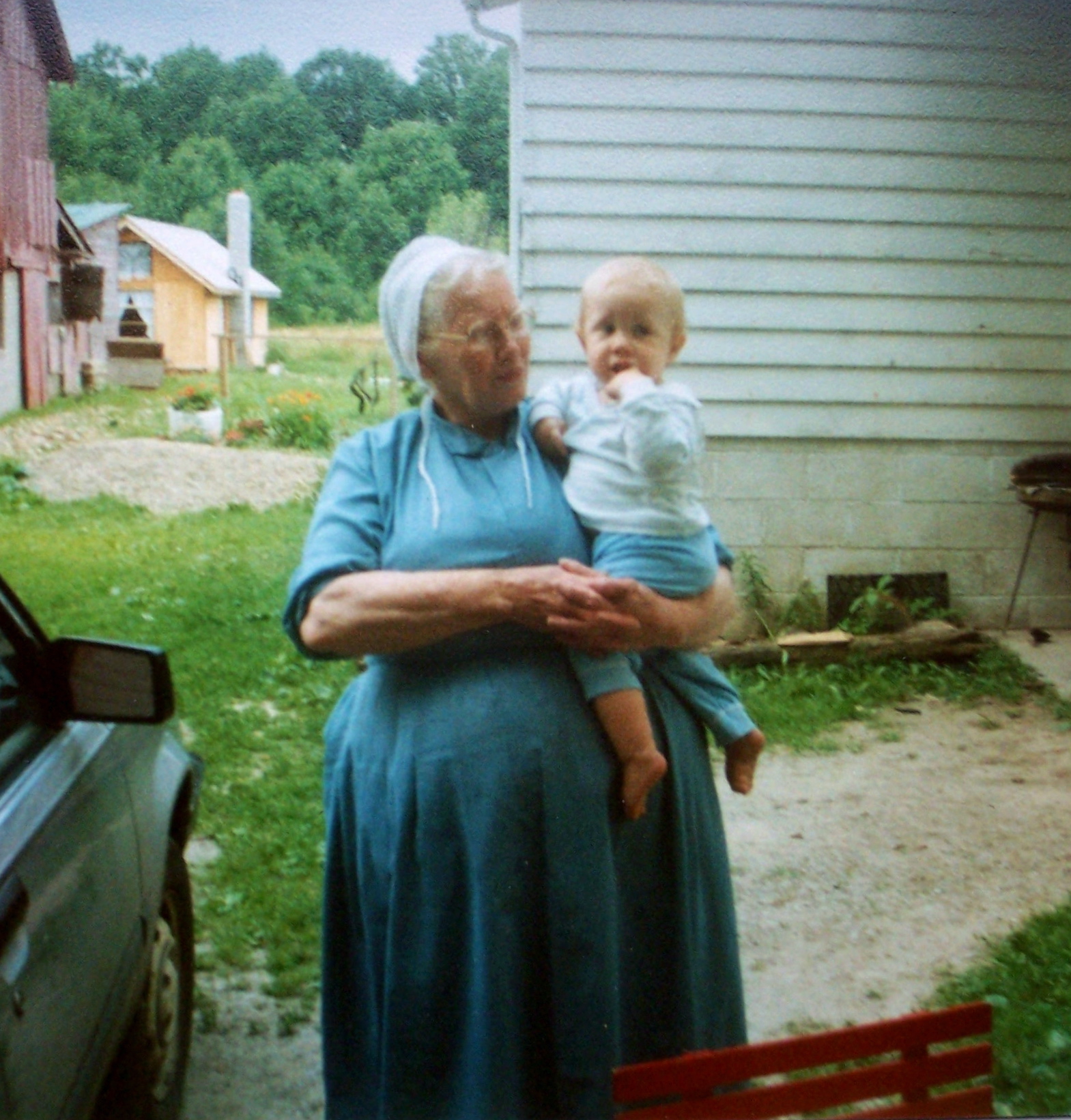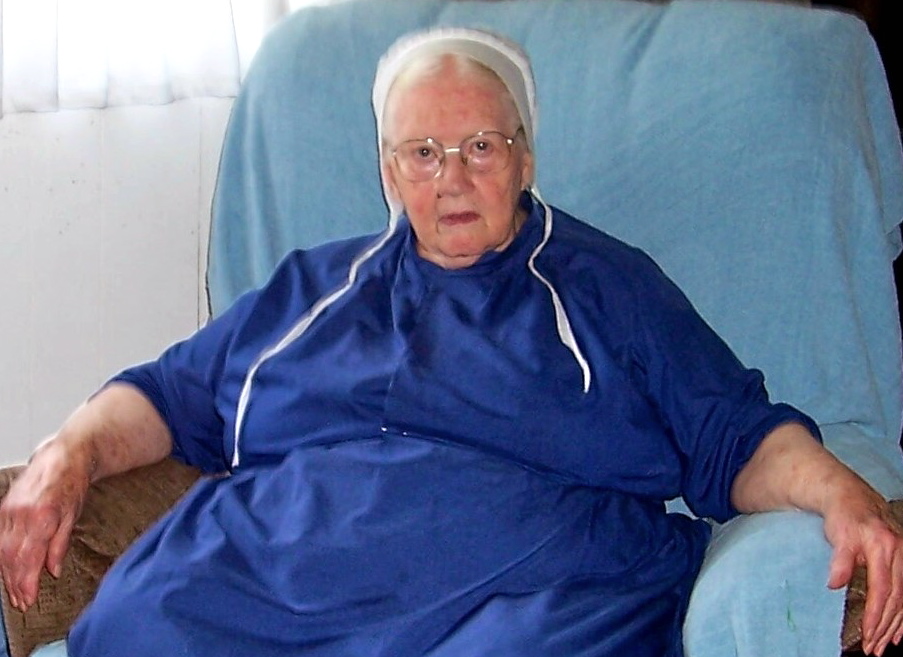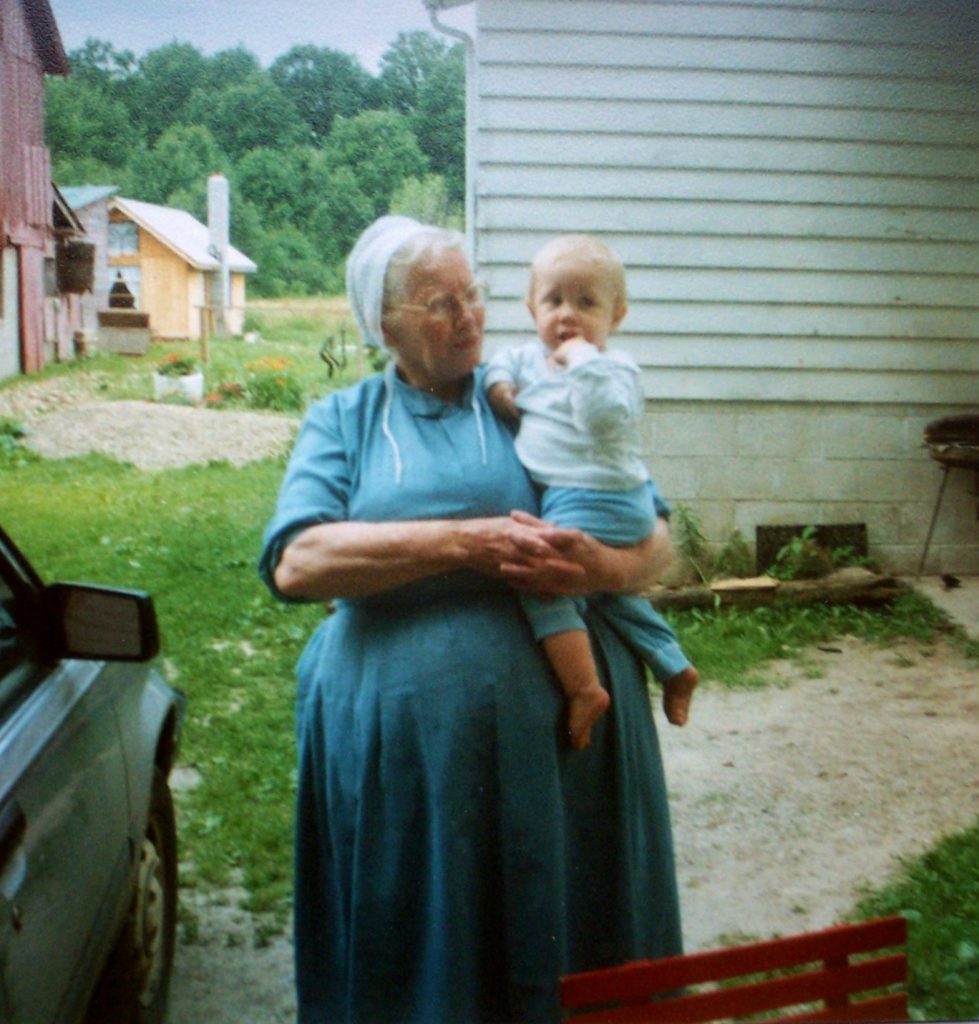Preface of the Memoir If You Promise You Won’t Tell
There are frequently irreconcilable conflicts between loyalty to our parents and being true to ourselves. —Alice Miller
If You Promise You Won’t Tell replaces my first memoir, Why I Left the Amish. This revision contains mostly new material of my childhood years, although the ending chapters about my exodus from the community are similar to the final chapters of Why I Left the Amish.
I was ecstatic to have my first book published in 2011. I had been attempting to publish the story of my childhood and my exodus out of my community for seventeen years. However, not many years after launching the book, I began wishing I could recall Why I Left the Amish. Because my perspective was evolving, I felt I had made too many mistakes in deciding what to include and what to exclude from the story.
In Why I Left the Amish, I wrote about the abuse I endured at the hands of my paternal grandmother, my father, and my older brother. The summer after I published my second memoir, Bonnet Strings: An Amish Woman’s Ties to Two Worlds, I began asking myself why I had omitted the abuse I endured at the hands of my mother (Mem). I realized I was still under the spell of believing that she was a martyr and a saint — a martyr for putting up with my father as her marriage partner, and a saint for being the “good parent” to her children. She had promoted this view of herself for as long as I could remember.
Mem was not abusive all the time. In my earliest memories of her, she was a nurturing and loving mother. It was only after I developed a voice of my own that our battle of wills began. There were times when I got along well with her, but if I showed any signs of rebellion or disobedience, the punishments were swift and severe. I often felt I had two mems — a nurturing one and a harsh one.
Nine years after Mem’s death, I was finally ready to take an honest look at what had really happened.I began writing a letter to her soul as a means of reconciling with her and with the hope of eventually forgiving her. My letter grew to one hundred and fifty pages long. The most poignant part of the letter addressed an incident when I was twelve years old in which she was an accomplice to a man friend of hers who sexually violated me. There were other incidents in which she did not protect my siblings from harm. This lack of protection leads me to believe that Mem’s own boundaries may have been violated when she was a child and consequently she didn’t know how to set and protect her children’s boundaries. The nature of the violations she may have endured as well as the identity of those who violated her are secrets she took with her to her grave. However, the effects of such experiences showed up in her behavior. Because she carried her history and pain inside, there was only one direction for this pain to go — right down to the next generation.
I was determined I was not going to do to my children what had been done to me. I knew I needed counseling. During four years of intensive therapy, there were times when I felt that the pain was greater than what could be attributed to my own wounds, as if I was trying to heal Mem’s pain as well as my own. When Mem died, I was left with the burden of reconciling our relationship alone — a daunting task, given I know so little about her history.
Not only did Mem refuse to relinquish her stories, but she also repeatedly requested that I “bury these things in the past and let them stay buried.” This chasm of difference in the way we approached our lives — Mem’s determination to bury her pain, and my need to voice mine, her attempts to silence me, and my attempts at drawing out her stories — could well have been at the core of our longstanding battle of wills. This major difference was never to be resolved or reconciled and remains the chasm between my worldview and the one Mem retained to her death.
After writing to Mem’s soul, I took up braiding rugs, one of the homespun arts I had learned from her when I was growing up. One day I was sitting in my attic room, braiding and looking out over the neighborhood with the bridge that spanned the Connecticut River in the background. I felt close to Mem as my hands folded in the edges of the three soft yielding strands of wool. I folded the right strand over the middle one, then the left strand, creating a braid of dark purple and gray. Over and over I folded, right, then left, right then left. I thought of each strand representing three parts of forgiveness — one of honesty, another of humility, and another of compassion. With these three strands, I was braiding my way to forgiveness.
As I sat in my quiet home thinking and braiding, I wondered why I struggled with forgiving as I had been taught I should do. The Amish definition of forgiveness is to forgive and forget. It seemed to me that Mem wanted to skip the forgiveness part (which first requires an admission of committing a wrong) and go directly to the forgetting part. But I knew that memories are organic and therefore I could not choose which of my experiences to remember and which ones to forget.
Mem’s expectations mirrored those in the community. Amish women were expected to bear their struggles in silence. This expectation to be the “silent in the land” was handed down through the generations from mother to daughter as part of our cultural heritage. I often wished I could meet such expectations and become a “good” Amish child and young woman. Growing up in this context, I still don’t understand where my compulsion came from to give voice to my experiences as a means of understanding my life and my world.
As I kept braiding in the attic room of my home, I longed to reach a point of understanding Mem’s life, forgiving her, and letting go of the past. Then I realized that forgiveness does not include bearing the burden of silence as she had. By remembering and writing my stories, I forgo or give up the guilt of revealing what happened. Instead of forgiving and forgetting, I am remembering and relinquishing.
In the first photo below, Mem is wearing her nurturing face as she holds our son, Tim. In the second photo, she has that fearsome look in her eyes that makes me want to look away.





Looking forward to reading your new book!
Thank you, Mary. It’s good to see you here!
Very powerful. Sometimes the passage of time helps us to understand the past, and then leads us to our own healing. I’m looking forward to reading the new book.
Thank you, Denise, for your thoughts. I agree with your insight. Thank you for your support of my new book.
Poignant insights, and it’s so important to acknowledge the wrong in order to break the cycle and stop perpetuating it.
Yes, I agree. Acknowledging the wrongs and facing the pain were essential in my process of breaking the cycle. I’m sure I still carried vestiges of the family patterns, but my sons did not live with a chronic dose of them.
It is so good to see you here! It’s been a long time… Are you still writing your blog? I should go out on the net and find out!
Saloma, I think this is going to be an amazing book. There could be so many who will relate to it and be helped by it, me included. Though my mother was not physically abusive she was in other ways. The last few months of her life i took care of her and was able to get some of her childhood memories out of her. However most went with her to the grave.She did not feel loved by her adopted parents and dealt with some physical and emotional abuse. She was on morphine near the end of her life and maybe it helped let her guard down enough to tell me a few things but then the tears would come and I could see her forcing it all back down. Perhaps that generation whether Amish or not where taught to keep private things private. That you don’t discuss them with family let alone strangers. Skeletons stay in the closet. I know I was afraid of my mother most of my life and sadly did not cry when she died. Now, five years later I cant let go of the fact that it still makes me sad that I really didn’t know her. That the bits and pieces she did share were not enough to help me understand her or why she treated us the way she did. I have forgiven, but how does one ever really forget.
Pamela, it is precisely the kind of understanding of mother issues that you describe here that keeps me moving forward in writing this book.
Your last statements brought me to tears:
“Now, five years later I cant let go of the fact that it still makes me sad that I really didn’t know her. That the bits and pieces she did share were not enough to help me understand her or why she treated us the way she did. I have forgiven, but how does one ever really forget.”
Wow, I could have written those very words. So powerful. I hope you will write your own story. You are so capable of putting your feelings into words… it is a true gift.
Salina, Thank you so much for sharing your story. I’m 41 and lost my mom last year. Death seems to bring such clarity to the past. I have listened to the audio version of your first book countless times. I can’t tell you how much it has helped me confront the memories and mysteries of the past.